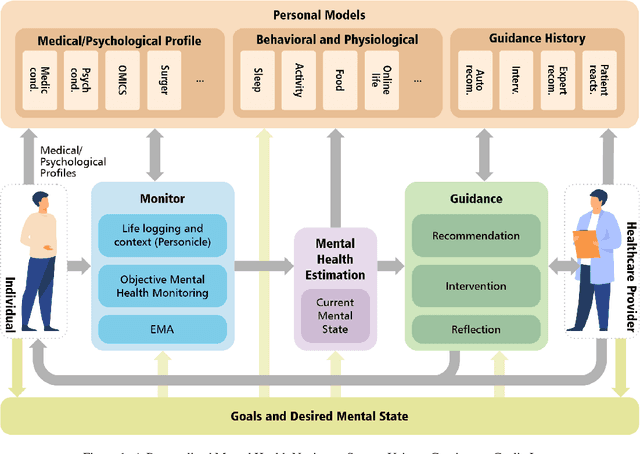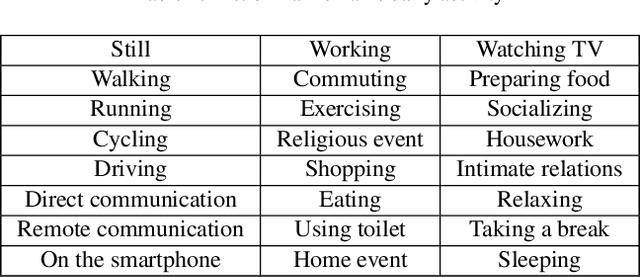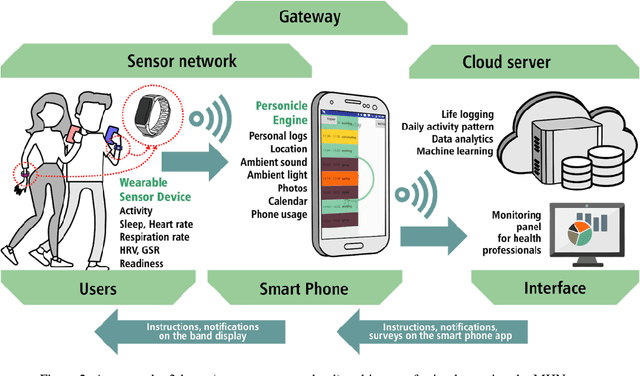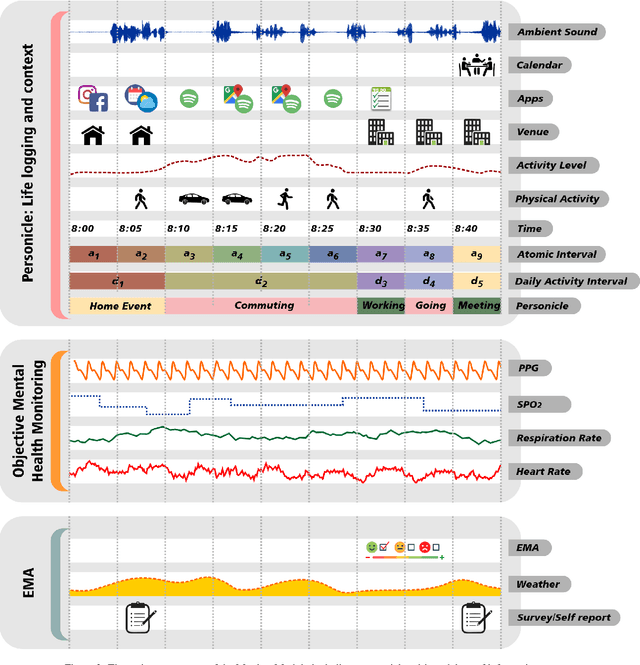Jessica L. Borelli
Integrating Wearable Sensor Data and Self-reported Diaries for Personalized Affect Forecasting
Mar 23, 2024



Abstract:Emotional states, as indicators of affect, are pivotal to overall health, making their accurate prediction before onset crucial. Current studies are primarily centered on immediate short-term affect detection using data from wearable and mobile devices. These studies typically focus on objective sensory measures, often neglecting other forms of self-reported information like diaries and notes. In this paper, we propose a multimodal deep learning model for affect status forecasting. This model combines a transformer encoder with a pre-trained language model, facilitating the integrated analysis of objective metrics and self-reported diaries. To validate our model, we conduct a longitudinal study, enrolling college students and monitoring them over a year, to collect an extensive dataset including physiological, environmental, sleep, metabolic, and physical activity parameters, alongside open-ended textual diaries provided by the participants. Our results demonstrate that the proposed model achieves predictive accuracy of 82.50% for positive affect and 82.76% for negative affect, a full week in advance. The effectiveness of our model is further elevated by its explainability.
Personal Mental Health Navigator: Harnessing the Power of Data, Personal Models, and Health Cybernetics to Promote Psychological Well-being
Dec 15, 2020



Abstract:Traditionally, the regime of mental healthcare has followed an episodic psychotherapy model wherein patients seek care from a provider through a prescribed treatment plan developed over multiple provider visits. Recent advances in wearable and mobile technology have generated increased interest in digital mental healthcare that enables individuals to address episodic mental health symptoms. However, these efforts are typically reactive and symptom-focused and do not provide comprehensive, wrap-around, customized treatments that capture an individual's holistic mental health model as it unfolds over time. Recognizing that each individual is unique, we present the notion of Personalized Mental Health Navigation (MHN): a therapist-in-the-loop, cybernetic goal-based system that deploys a continuous cyclic loop of measurement, estimation, guidance, to steer the individual's mental health state towards a healthy zone. We outline the major components of MHN that is premised on the development of an individual's personal mental health state, holistically represented by a high-dimensional cover of multiple knowledge layers such as emotion, biological patterns, sociology, behavior, and cognition. We demonstrate the feasibility of the personalized MHN approach via a 12-month pilot case study for holistic stress management in college students and highlight an instance of a therapist-in-the-loop intervention using MHN for monitoring, estimating, and proactively addressing moderately severe depression over a sustained period of time. We believe MHN paves the way to transform mental healthcare from the current passive, episodic, reactive process (where individuals seek help to address symptoms that have already manifested) to a continuous and navigational paradigm that leverages a personalized model of the individual, promising to deliver timely interventions to individuals in a holistic manner.
 Add to Chrome
Add to Chrome Add to Firefox
Add to Firefox Add to Edge
Add to Edge